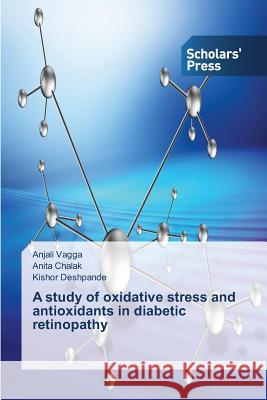A study of oxidative stress and antioxidants in diabetic retinopathy » książka
A study of oxidative stress and antioxidants in diabetic retinopathy
ISBN-13: 9783639763584 / Angielski / Miękka / 2015 / 108 str.
More than 90% of diabetic patients with poor glycemic controls for many years develop retinopathy. In diabetic retinopathy, free radicals are generated by autoxidation reactions of sugar and by autoxidation of unsaturated lipids in plasma and membrane proteins. Elevated generation of NO in ocular vessels of the perinate facilitates peroxynitrite formation with its deleterious effects including increased lipid peroxidation and platelet aggregation. The enhanced consumption of ascorbic acid results in increased oxidation of ascorbic acid to dehydroascorbic acid to scavenge increased free radicals. Zinc is directly involved in insulin metabolism (insulin synthesis, storage, secretion and degradation). Zinc deficiency in diabetics had a reduced secretion of insulin and a reduced sensitivity to the hormone. We conclude that a high level of glucose in blood for a long duration is the main cause of the development of retinopathy. Increased in the free radical by hyperglycemia, lipid peroxidation and decreased antioxidants are the causative agents for the development of diabetic retinopathy.











